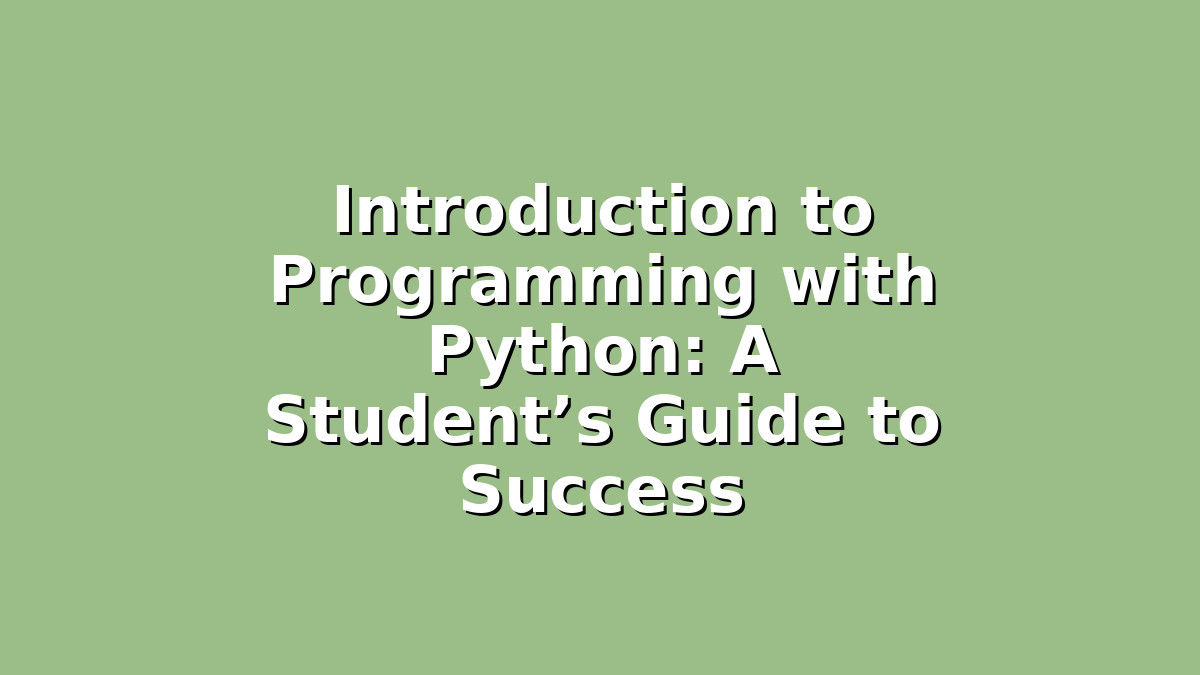Programming is an increasingly valuable skill in today’s digital world, and Python is one of the best languages for beginners to learn. Whether you are preparing for exams in computer science, aiming to improve your coding skills, or just looking to understand the basics of programming, Python offers a clear, readable, and powerful way to get started. In this article, we’ll introduce you to Python programming and provide study tips tailored to students to help you master the language effectively.
Why Python Is Perfect for Students
Before diving into study strategies, it’s important to understand why Python has become the go-to language for beginners. Python has a simple syntax that closely resembles English, which makes it easier to read and write compared to other programming languages. It’s also very versatile, used in fields like web development, data science, artificial intelligence, and automation. This versatility means that the skills you learn in Python can open many doors later in your academic and professional life.
Now, let’s explore three key areas that will help you succeed in learning Python: understanding core concepts, practicing effectively, and using resources smartly.
1. Grasping Core Programming Concepts Through Python
One of the biggest hurdles for students new to programming is getting comfortable with foundational concepts. Python’s straightforward syntax allows you to focus on learning these essential ideas without getting bogged down in complicated code. Here are some of the core concepts you should master early on:
– Variables and Data Types: Understand how Python stores different types of information, such as numbers, text (strings), and lists. Knowing how to manipulate these is fundamental.
– Control Structures: Learn how to use conditional statements (`if`, `elif`, `else`) and loops (`for`, `while`) to control the flow of your program.
– Functions: Functions help you organize your code into reusable blocks. Get comfortable writing functions, understanding parameters, and returning values.
– Basic Data Structures: Explore Python’s built-in data structures like lists, dictionaries, and sets, which allow you to organize and manage data efficiently.
Study Tip: Instead of just reading about these concepts, try to implement small programs that use them. For example, write a program that asks for user input and responds differently based on the input. This active engagement will help solidify your understanding.
2. Practice Regularly and Work on Projects
Like any skill, programming improves most through consistent practice. Even if you only dedicate 30 minutes a day to coding, the progress you make will add up quickly. Here are some strategies to keep your practice productive:
– Solve Practice Problems: Start with beginner-friendly exercises on platforms like HackerRank, LeetCode, or Codecademy. These problems often focus on specific concepts and help you build confidence.
– Code Along with Tutorials: Watching video tutorials and coding along can be very effective. It allows you to see how experienced programmers approach problems and how they write clean code.
– Build Small Projects: Try creating simple projects such as a calculator, a to-do list app, or a number guessing game. Projects give you a goal and help you apply multiple concepts together.
Study Tip: Keep a coding journal or blog where you write about what you’ve learned and the problems you’ve solved. Explaining concepts in your own words reinforces learning and can be a handy revision tool before exams.
3. Use Resources Wisely and Seek Help When Needed
The abundance of learning resources for Python can be overwhelming, so it’s important to choose wisely and know when to ask for help.
– Books and Online Courses: Highly recommended beginner books include “Automate the Boring Stuff with Python” by Al Sweigart and “Python Crash Course” by Eric Matthes. Online courses from Coursera, edX, and freeCodeCamp offer structured learning paths.
– Official Documentation: The Python official documentation (docs.python.org) is a valuable reference. While it might seem technical at first, it’s the most accurate and up-to-date source.
– Join Communities: Platforms like Stack Overflow, Reddit’s r/learnpython, and Discord coding groups provide a place to ask questions, share projects, and get feedback.
– Pair Programming: Studying with a friend or joining a study group can keep motivation high and provide different perspectives.
Study Tip: Don’t be afraid of making mistakes or getting stuck—it’s a natural part of learning to program. When you encounter bugs or errors, try to debug systematically: read error messages carefully, use print statements to check variable values, and break your code into smaller parts to isolate problems.
Conclusion
Learning programming with Python is an exciting journey that can build valuable skills for your academic and future career. By focusing on understanding core concepts, practicing regularly through exercises and projects, and using the right resources and support systems, you’ll develop confidence and competence in coding. Remember, persistence is key—every programmer started where you are now, and with steady effort, you’ll see your skills grow day by day. Keep coding, stay curious, and don’t hesitate to reach out for help when you need it. Good luck with your studies and exams!

Responses